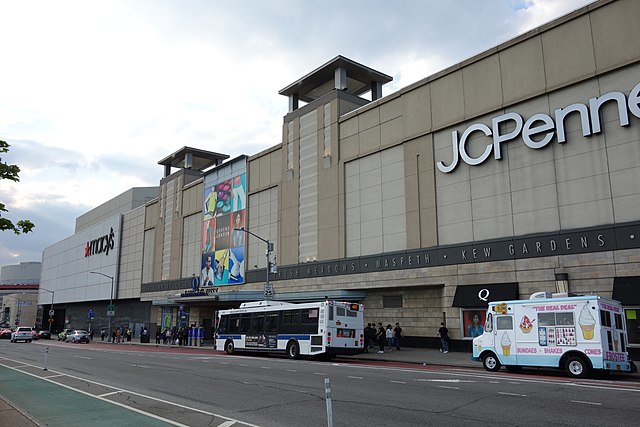Mid-Atlantic Retail Loans Face Default Risk

“CRED iQ curated a regional catalog of commercial real estate loans with maturities coming due over the next three years,” wrote Marc McDevitt, senior managing director at CRED iQ.
“The namesake Retail Refi Recon focuses on loans secured by retail properties located in the Mid-Atlantic region of the U.S., which includes New York, New Jersey, Pennsylvania, Delaware, Maryland, Virginia, West Virginia and Washington, D.C. Also included are distressed loans that have transferred to special servicing prior to 2022 maturity dates as well as real estate-owned (REO) assets slated for liquidation.
“Focusing on loans coming to refinance over the next three years, regardless of property type, may be a prudent strategy for distressed commercial real estate investors or those looking to provide cash infusions to facilitate recapitalizations.
“The retail sector, in particular, has faced numerous headwinds related to both adverse impacts from the pandemic as well as secular changes stemming from consumer preferences and the evolution of e-commerce. Even sub-types of retail perceived historically as having relatively low credit risk such as single-tenant net-lease properties have faced higher velocity repositioning as traditional tenants like Walgreens, CVS and retail bank branches have pulled back physical brick and mortar footprints.
“Retail loans at risk of maturity default include those with a low debt service coverage ratio, low debt yield, or other underlying credit issues at the collateral property. Current occupancy and the stability of rent rolls are also important factors for a smooth refinance process, given primary tenants with near-term lease expirations generally are red flags for lenders.
“Canvassing the CMBS landscape, there are 15 REO retail properties in the Mid-Atlantic with approximately $171 million in outstanding debt. The largest REO retail property in the Mid-Atlantic based on outstanding debt is a 360,249-square-foot portion of Charlottesville Fashion Square in Charlottesville, Va. This part of the regional mall was reportedly sold to Home Depot in September 2022 in a transaction that was facilitated by JLL and the property was still under contract as of this writing.
“REO properties are not the only distressed retail opportunities available. CRED iQ also identified 12 properties securing specially serviced loans totaling $439 million that had 2022 maturity dates. These maturity defaults will require specialized workouts, and select collateral properties could ultimately go through foreclosure and subsequent liquidations.
“Looking ahead over a three-year horizon, there are roughly 95 CMBS loans totaling $2.5 billion that are scheduled to mature in 2023. Of these, approximately nine loans totaling $547 million, equal to 22 percent, are in special servicing.
“One of the largest loans in special servicing is a $248 million mortgage secured by the Crossgates Mall in Albany, N.Y., which is set to mature in May 2023. The loan was originated with a May 2022 maturity date, but the borrower negotiated a one-year extension in 2020. One option at maturity is another extension.
“The loan sponsor for the Crossgates Mall mortgage also separately negotiated a five-year extension in June 2022 for $430 million in debt secured by the sprawling retail complex known as Destiny USA in Syracuse, N.Y.
“There are more than 175 Mid-Atlantic retail loans, totaling approximately $3.8 billion, scheduled to mature in 2024. This includes $525 million in debt secured by the Garden State Plaza in Paramus, N.J.
“The 2025 maturity bucket comprises in excess of 275 loans totaling $3.4 billion. The largest Mid-Atlantic retail loan with a 2025 maturity date is a $600 million mortgage secured by the Queens Center retail complex in Elmhurst, N.Y.
“Altogether, there are more than 500 Mid-Atlantic retail properties securing CMBS loans with an aggregate outstanding balance of roughly $9.7 billion that are scheduled to mature from 2023 through 2025. We expect some difficulty in timely refinancing for a number of these retail loans over the next three years given inflationary pressures on cash flows, rising interest rates relative to origination, and property-specific credit issues that may be present.”



